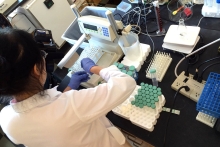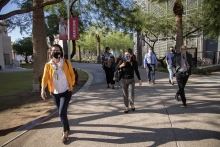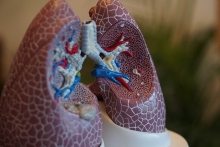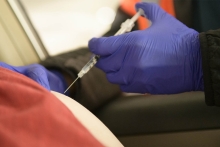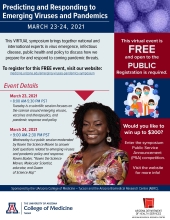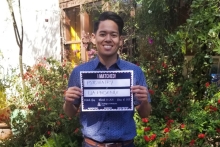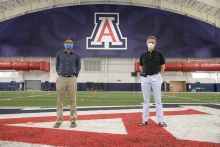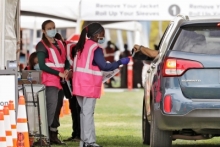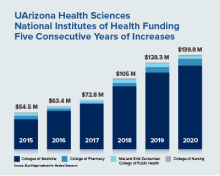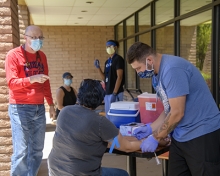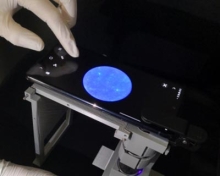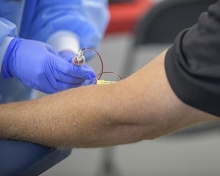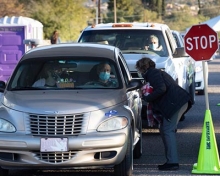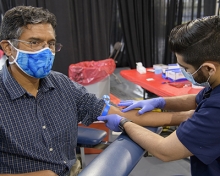News
Jordan Karp, MD, an expert on mental health in the aging population, will deliver the keynote address at the Arizona Arthritis Center’s Living Healthy With Arthritis Conference.
Data blitzes, spotlight talks and special session on diversity, equity and inclusion highlight the second annual event that is free and open to the public.
Experts will discuss what has been learned from the coronavirus pandemic and how this knowledge can be used to build a healthier future.
A free livestreamed lecture by UArizona Health Sciences immunologist Dr. Deepta Bhattacharya offers an expert look at COVID-19 vaccines, variants and immunity.
With a $3.3 million grant from the National Institutes of Health, Dr. Francesca Polverino will investigate B cell responses in patients with emphysema.
Questions about COVID-19 vaccine safety, speed of vaccine development, side effects, efficacy and variants will be answered by at a free virtual town hall.
This VIRTUAL symposium brings together national and international experts in virus emergence, infectious disease, public health and policy to discuss how we prepare for and respond to coming pandemic threats.
On Match Day, about 120 UArizona College of Medicine – Tucson students learned where they’ll launch their careers as new residents after graduation.
Scientists at the University of Arizona have joined a national effort to educate the general public about COVID-19 vaccination
Immunobiology and UArizona Heal Sciences researchers are improving health by studying the interactions that govern the immune defense system against invading microbes.
Immunobiologist Dr. Deepta Bhattacharya answers common questions about what to expect after receiving the COVID-19 vaccine.
Increases in total National Institutes of Health funding have led to higher rankings for several colleges and departments.
The AZ HEROES research study is expanding its scope to assess vaccine effectiveness, as well as increasing eligibility to include college students.
The new test aims to combine the speed of existing nasal swab antigen tests with the high accuracy of nasal swab PCR, or polymerase chain reaction, tests.
The antibody test developed at the UArizona Health Sciences can be used to confirm a positive antibody response after receiving a COVID-19 vaccine.
AIDS women’s health award to Dr. Liz Connick; Liver Institute wins CDC designation; Dr. Julie Bauman co-chairs cancer prevention committee.
University of Arizona Health Sciences immunobiologist Dr. Deepta Bhattacharya says the COVID-19 vaccine is safe, and he will take it when it becomes available.
Antibody tests, groundbreaking research and community outreach are a few of the ways the University of Arizona Health Sciences met the test of a pandemic.



